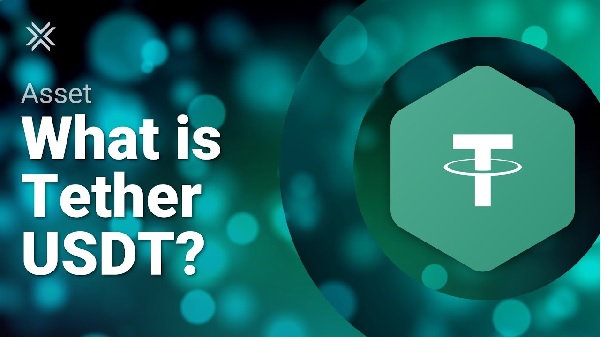USDT, also known as Tether, is the largest stablecoin per market capitalization and is used by millions of blockchain users all over the world, Nigeria inclusive. The widespread popularity of this cryptocurrency is because each token is pegged against the dollar at a 1:1 ratio, making it safe for blockchain users to hedge against the inherent volatility of their cryptocurrency investments. In recent years, the Central Bank of Nigeria has issued directives banning crypto trading in Nigeria. You may wonder if the CBN has the requisite authority to do so. Read on to learn the position of the law on USDT (and other cryptocurrencies) in Nigeria.

-
Is USDT Legal in Nigeria?
Yes, USDT is legal in Nigeria. Although the Central Bank of Nigeria does not recognise cryptocurrencies as legal tender, USDT and other cryptocurrencies are not illegal as no written law contains provisions criminalizing their use. CBN Press Releases containing directives that prohibit the use of cryptocurrencies in Nigeria were just publications and not written laws, hence they cannot define what constitutes an offence going by the provisions of Section 36 (12) of the 1999 Constitution of the Federal Republic of Nigeria.
-
What is the Position of the Law on USDT in Nigeria?
USDT and other cryptocurrencies have faced stiff criticisms from the apex bank as far back as 2017. The decentralised nature of cryptocurrencies such as USDT and Bitcoin makes it difficult for the government to regulate them. This is why the Central Bank of Nigeria does not recognise cryptocurrencies and has warned that financial institutions in the country desist from transacting with entities dealing with cryptocurrencies.
However, the Central Bank of Nigeria’s refusal to recognise cryptocurrencies as a form of exchange does not mean they are illegal in Nigeria. The authority on which we make this stance is based on the provisions of Section 36 (12) of the 1999 Constitution of the Federal Republic of Nigeria which states:
“Subject as otherwise provided by this Constitution a person shall not be convicted of a criminal offence unless that offence is defined and the penalty, therefore, is prescribed by a written law; and in this subsection, a written law refers to an Act of the National Assembly or a Law of a State, and subsidiary legislation or instrument under the provisions of the law.”
From the quote above, as the use of USDT (and other cryptocurrencies) hasn’t been expressly banned, prohibited or criminalized by any known Nigerian law, USDT is thus legal in Nigeria.
To further substantiate our stance that USDT is legal in Nigeria, we will reference
the ruling in the case of Central Bank of Nigeria v. Rise Vest Technologies & Ors. In the said case, Justice Taiwo O. Taiwo of the Federal High Court, Abuja declared that the CBN’s circular, referenced as BSD/DIR/PUB/LAB/014/001 of February 5, 2021, is not a law and that CBN lacks the requisite authority to declare crypto trading to be illegal by a mere circular.
Therefore, USDT and other cryptocurrencies will continue to be legal in Nigeria until a law which expressly bans or criminalizes the use of cryptocurrencies is enacted. Simply put, no person or organization can be convicted by a court of law to have committed an offence for trading USDT and other cryptocurrencies in Nigeria. The only exception to this is if the trading of cryptocurrency was to facilitate a crime, say funding terrorism or money laundering.
-
What is USDT?
USDT, also known as Tether, is a stablecoin created by Tether Limited. The use of stablecoins like USDT has become widespread all over the world. The USDT is pegged against the USD at the ratio of 1:1, that is, a unit of USDT is worth $1, and is further backed by $1 in physical reserves.
As the USDT is backed by the USD, it bridges the gaps between fiat currencies and blockchain assets which previously existed. Now with the USDT, blockchain users can trade, hedge and transact on several blockchain networks without needing a third-party intermediary.
-
What are the Benefits of USDT?
If you’re a blockchain user, you’ve certainly witnessed the volatility that happens in the cryptocurrency industry. To keep the worth of your blockchain assets to plummet during the dip, hedging them with USDT gives you the peace of mind that you don’t suffer such risks. Each token of the USDT is equal to $1 and backed by $ in the Tether’s physical reserves. USDT also allows you to carry out peer-to-trading allowing you to transact with other blockchain users with ease. Whether you are a day trader, arbitrage trader, or trying to hedge your blockchain assets against Black Swan events, USDT is worth considering.
At the time of writing this article, the USDT token is available on several cryptocurrency networks, including Bitcoin, Ethereum, EOS, Tron, Algorand and IMG Network. On every blockchain network where USDT tokens and smart contracts are hosted, regular audits are performed by the platforms to ensure that the code is up-to-date, secure, and in line with the current framework in the cryptocurrency industry. Tether, on the other hand, strives to ensure that the USDT remains compliant with every cryptocurrency network it is being hosted on. Regardless of which platform you have your blockchain assets hosted on, you can rely on top-notch sophisticated security measures put in place by USDT to always keep your assets safe.
If you doubted the legality of USDT in Nigeria, we believe this article has convinced you that CBN’s Press Releases banning crypto trading cannot make it illegal. As a blockchain user, you should put in mind that USDT works to keep its valuation stable regardless of Black Swan events in the cryptocurrency scene. That means the value of your blockchain assets hedged against the USDT token does not appreciate or depreciate. Ready to trade, hedge and transact with USDT? Go on to the secondary crypto markets to purchase USDT tokens to hedge your blockchain investments against volatility during the dip.